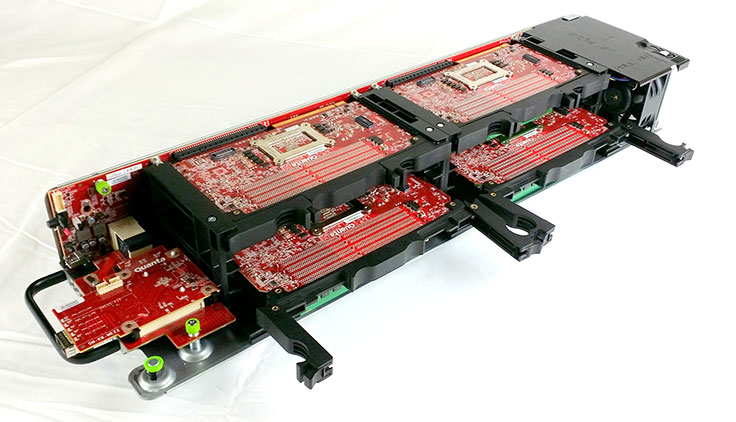SAN JOSE, Calif. — Facebook has been tinkering again. The social networking giant has devised extremely efficient servers for its data centers, and now the company intends to share the specifications of these servers with the Open Compute Project (OCP).
This is the “first system-on-a-chip compute server that supports [four] independent … servers at a performance-per-watt and cost-per-watt point superior to traditional data center servers,” a Facebook spokeswoman told VentureBeat in an email.
The units are codenamed Yosemite, and they can let Facebook squeeze as many as 192 chips into a single rack inside a data center, Facebook vice president of engineering Jay Parikh told the crowd at the Open Compute Summit today.
Facebook first started the OCP in 2011, and several hardware vendors have come onboard, including HP, which showed off its new OCP-compliant servers earlier today at the 2015 Open Compute Summit.
June 5th: The AI Audit in NYC
Join us next week in NYC to engage with top executive leaders, delving into strategies for auditing AI models to ensure fairness, optimal performance, and ethical compliance across diverse organizations. Secure your attendance for this exclusive invite-only event.
Facebook continually optimizes the infrastructure in its own data centers around the world — in the key realms of servers, storage gear, and networking hardware — and this is the latest wave of innovation coming out from the company.
The Open Compute work — including software and hardware — has saved a lot of money for Facebook.
“We are currently tracking at over $2 billion that’s been saved over the last three years,” Parikh said. “This is a full-stack optimization.”
Now other companies operating data centers may well move to adopt these new servers from Facebook if recent history is any indicator.
See the blog post on Yosemite to learn more about the new servers.


